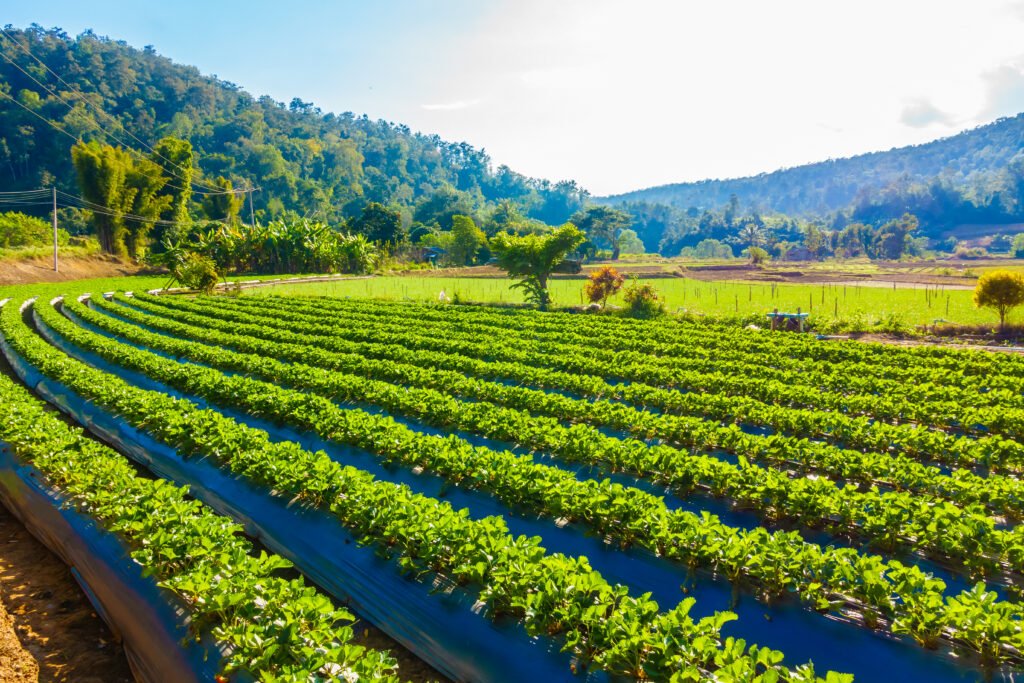
Natural farming is becoming more and more popular as a welcome return to simplicity in the modern world of agriculture, which is dominated by machinery and chemicals. It’s more than just a farming method; it’s a means of re-establishing a connection with the natural world, the soil, and life itself.
The natural farmer is bringing back ancient customs, preserving the environment, and growing food that genuinely nourishes us all over India and the world. However, what precisely is natural farming, how does it differ from other practices, and why is it so crucial for our future and well-being?
An agricultural practice known as “natural farming” operates in perfect balance with the environment. It stays away from genetically modified seeds, synthetic fertilizers, and pesticides, in contrast to chemical farming. Rather, the natural farmer maintains the soil alive and healthy by using organic and local resources such as compost, crop residues, cow dung, cow urine, and beneficial microbes. What is natural farming, to put it simply? It’s a natural, chemical-free, and vibrant method of producing food.
To truly understand farm nature, we must see how natural farming differs from modern chemical or even organic farming.
| Aspect | Chemical Farming | Natural Farming |
| Chemical use | Synthetic fertilizers & pesticides | No chemicals at all uses farm-based natural inputs |
| Cost | High due to chemical inputs | Very low made by the natural farmer locally |
| Soil Health | Degrades over time | Restores and regenerates naturally |
| Water Usage | High | Low (thanks to mulching and living soil) |
| Crop Yield | Initially high but declines | Sustainable and balanced |
| Health Impact | Risky for long-term health | 100% safe and chemical-free |
1.Protects the Environment
Since natural farms don’t use harmful chemicals, there’s less pollution in the soil, water, and air. Farmer nature thrives bees, butterflies, and earthworms return to the fields, restoring balance to farm nature.
2.Builds Healthy Soil
Natural compost, cow dung, and organic residues improve the soil’s structure and fertility. This living soil becomes full of nutrients, microorganisms, and moisture creating a healthy base for crops.
3.Saves Water
The natural farm retains more moisture and requires less irrigation. Mulching covering the soil with dry leaves or crop waste helps water stay in the ground longer, reducing the need for frequent watering.
4.Low Cost and Profitable
The natural farmer doesn’t depend on expensive fertilizers, pesticides, or hybrid seeds. All natural materials are made within the farm itself. As a result, production cost goes down, and profit increases.
5.Produces Healthy and Safe Food
Natural farming gives us chemical-free, nutrient-rich food. Since crops grow in balanced soil, they absorb essential minerals and vitamins, making them more nourishing and tastier. Consumers get pure food straight from the natural farm to their plate.
6.Strengthens Farmer Independence
When the natural farmer practices natural methods, they no longer rely on market-bought inputs. It makes farmers self-reliant, confident, and in control of their land and livelihood.
7.Sustains Future Generations
By protecting farm nature, we ensure that future generations inherit fertile soil, clean air, and pure water. Natural farming creates a long-term solution for sustainable agriculture.
Chemicals are now a major part of modern agriculture. This has lowered the nutritional value of food over time, contaminated water, and harmed soil fertility. We can restore farmer nature and create a world where farming works with the environment rather than against it by moving toward natural farms. Customers are also growing more conscious. Purchasing goods from natural farms promotes eco-friendly living and inspires more farmers to follow suit.
Natural farms, where every farmer, insect, and plant coexist in harmony, are the way of the future. The transition to the natural farm model is currently being backed by governments, eco-brands, and farmer communities. Zero Budget Natural Farming (ZBNF) is being promoted in Indian states like Andhra Pradesh, Maharashtra, and Karnataka in an effort to lower farmer debt and encourage sustainable growth. In the meantime, conscientious consumers are contributing by supporting the natural farmer movement and selecting natural farms in order to improve their health and the environment.
1️. What is natural farming?
Natural farming is a method of growing crops that works completely in harmony with farm nature. It avoids using chemical fertilizers and pesticides, and instead relies on natural materials like compost, cow dung, and beneficial microbes to keep the soil healthy.
2️. What is the difference between natural farming and organic farming?
While both aim to produce chemical-free food, natural farming is simpler and more self-reliant. In organic farming, farmers often buy certified organic inputs. In natural farming, the natural farmer creates everything needed on the farm using locally available natural resources.
3️. What are the benefits of natural farming?
The benefits of natural farming include improved soil fertility, better water retention, reduced costs, healthier food, and a cleaner environment. It supports farm nature by protecting biodiversity and reducing pollution
4️. Is food from natural farms healthier?
Yes, absolutely. Food grown in natural farms is rich in nutrients, free from chemical residues, and full of natural flavour. It supports better digestion, boosts immunity, and promotes overall health compared to chemically grown food.
5️. What is meant by farmer nature?
Farmer nature refers to the deep connection between the farmer and nature — a relationship built on respect, balance, and care. It’s the philosophy that the natural farmer follows: working with nature instead of controlling it.
6️. How can a farmer start natural farming?
A farmer can start by using traditional seeds, compost, cow-based fertilizers (like cow dung and urine), and avoiding all synthetic chemicals. Building healthy soil and practicing crop rotation are the first steps toward becoming the natural farmer.
Copyright © 2025 Magar Natural Food | All Rights Reserved